23+ Sample Expense Tracking Sheets
-
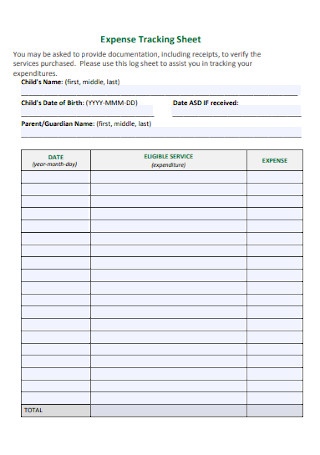
Sample Expense Tracking Sheet
download now -
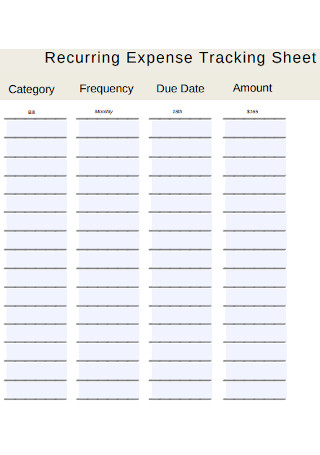
Recurring Expense Tracking Sheet
download now -
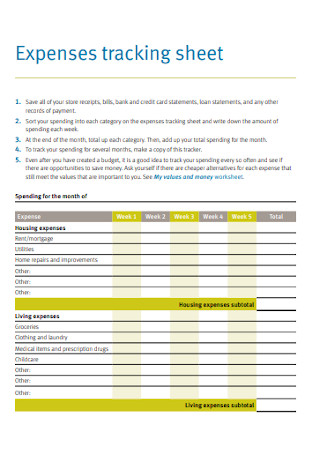
Expense Tracking Sheet Format
download now -
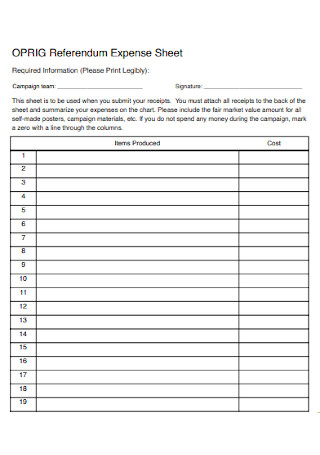
Referendum Expense Tracking Sheet
download now -
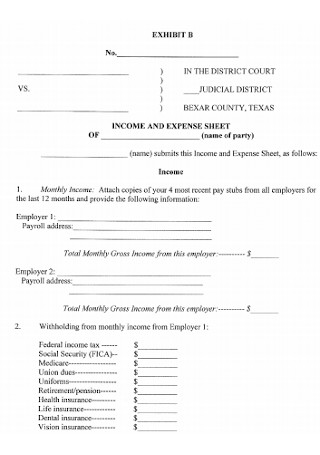
Income and Expense Sheet
download now -
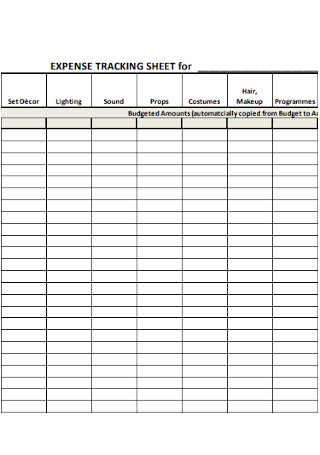
Basic Expense Tracking Sheet
download now -
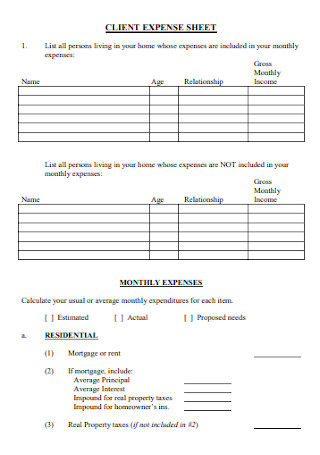
Client Expense Trackingt Sheet
download now -
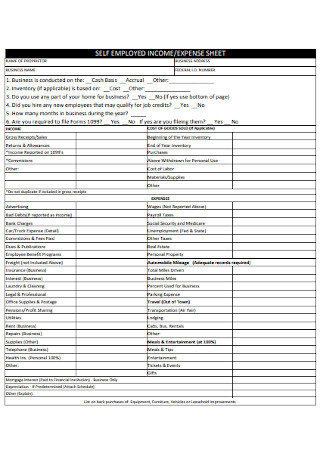
Self Employed Expense Tracking Sheet
download now -
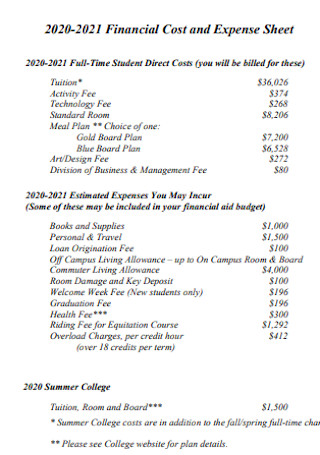
Financial Cost and Expense Sheet
download now -
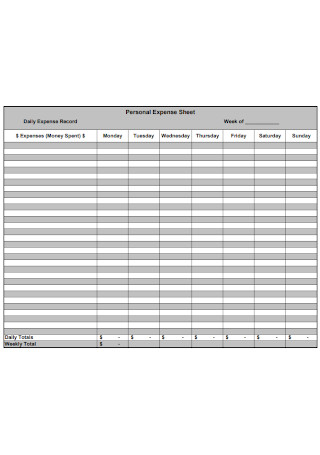
Personal Expense Tracking Sheet
download now -
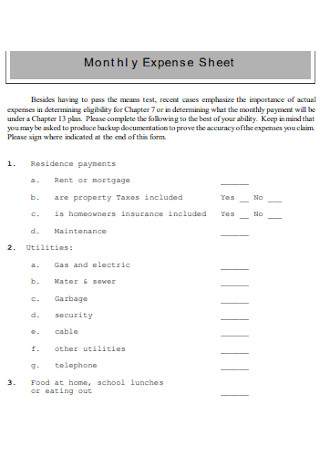
Mont hl y Expense Tracking Sheet
download now -
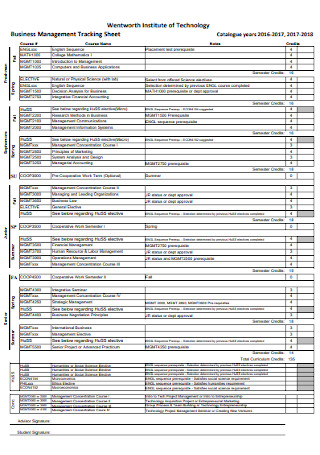
Business Management Expense Tracking Sheet
download now -
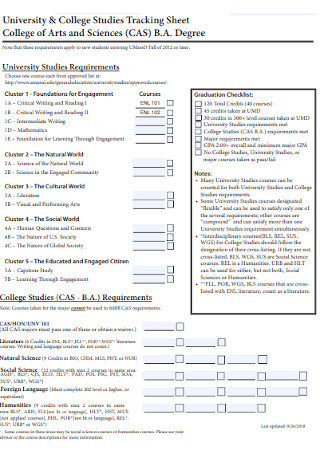
College Studies Expense Tracking Sheet
download now -
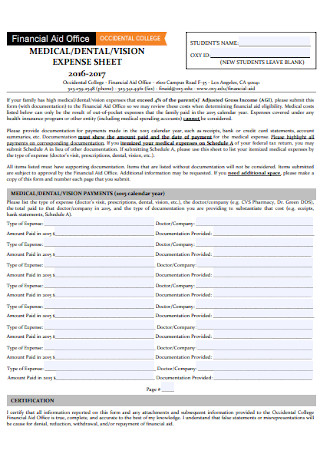
Vision Expense Tracking Sheet
download now -
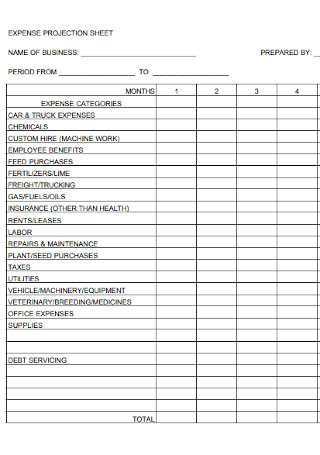
Expense Tracking Projection Sheet
download now -
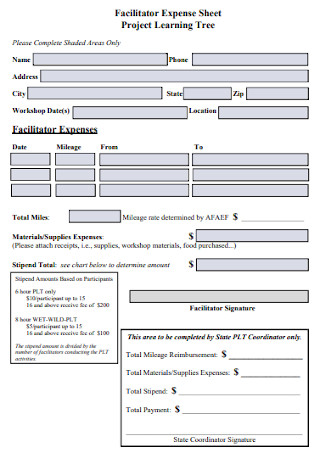
Facilitator Expense Tracking Sheet
download now -
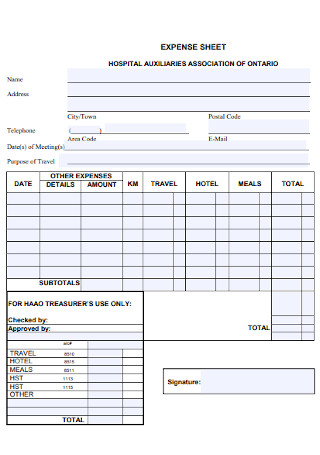
Hospital Expense Tracking Sheet
download now -
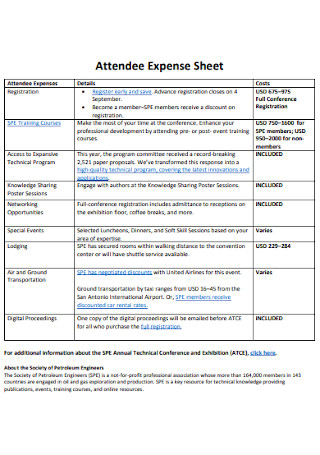
Attendee Expense Tracking Sheet
download now -
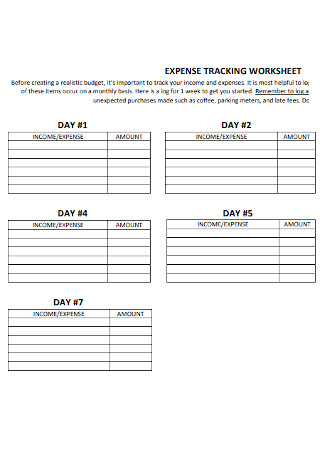
Expense Tracking Worksheet
download now -
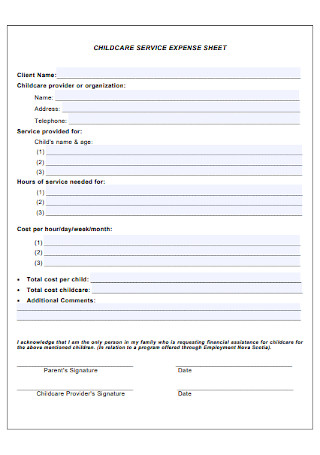
Childcare Service Expense Tracking
Sheet
download now -
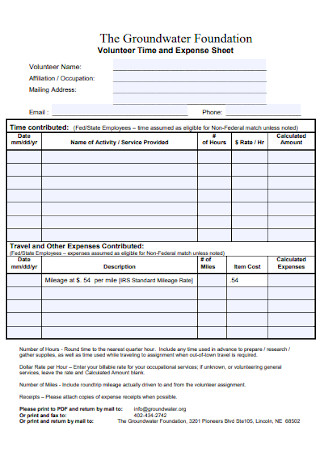
Volunteer Time and Expense Sheet
download now -
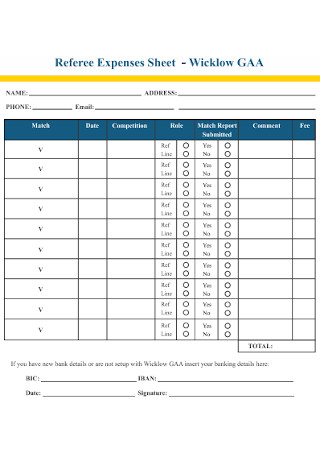
Referee Expense Tracking Sheet
download now -
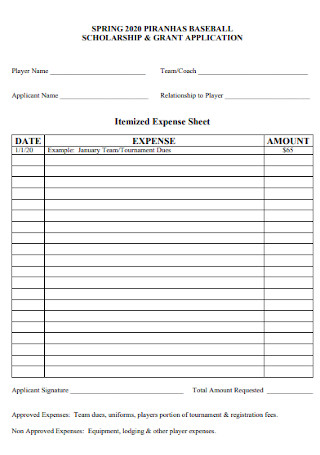
Itemized Expense Tracking Sheet
download now -
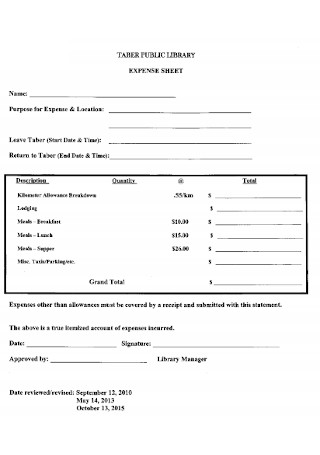
Library Expense Tracking Sheet
download now
FREE Expense Tracking Sheet s to Download
23+ Sample Expense Tracking Sheets
What is an Expense Tracking Sheet?
Expense Tracking Sheet: Who Needs It and Why Do You Need It?
5 Benefits to Tracking Your Expenses
FAQs
What does it mean to track your expenses?
What is income and expense tracking?
How do I track my household expenses?
It’s easy to feel overwhelmed especially when you’re presented with these many conditions and requirements. It’s like working out wherein instead of it supposedly helping you stay in shape for a healthier and confident life, you experience more hurdles and you have limited indulging yourself and doing things that usually make you happy. These wear you out that you want to quit. But doesn’t life work the same way? Not everything is handed to you easily and for free. If you want to have a better lifestyle, you have to stick to a plan.. If you want to get yourself that dream home, you work yourself to the bone to get it. To want for something better, there will always be several things you have to do and steps you must take to get to it.
Most times however, people don’t realize that when it comes to managing your money, there are simpler ways to go about it without the need for elaborate, expensive and technical expenses tracking softwares and confusing yourself with the abundance of choices and options that are available right now. We offer you sample worksheets that are made easy to work on manually by hand to help you get started with managing and controlling your personal finances.
What is an Expense Tracking Sheet?
Keeping tabs on your income and expenses is one of the basic steps to managing your money. An expense tracking sheet is similar to a money tracker except it specifically documents the money that goes out of your income. With a separate form that lists your outgoing monetary cash flow, you can organize your budgeting worksheet better as it won’t just be your financial activities all lumped into one.
Expense Tracking Sheet: Who Needs It and Why Do You Need It?
It’s one thing to keep track of your expenses just so you can monitor where your money goes, it’s another to do something about expenses that tiptoe the lines and harm the general budget. An expense tracking sheet is not just a compilation of your expenses, it’s also a documentation of your spending habits and when you’re made aware of your spending habits, it should be easy to identify which ones need to stay and which ones need to go. When you get an overall idea of your spending, you anticipate and handle periodic expenses better that it no longer impacts your budget and you also avoid getting yourself into financial problems.
In an article for The New Times written by Edwin Ashimwe, they mention a quote that says ‘“the easiest way of becoming bankrupt is by not paying attention to your expenses.” They go on to say that regardless of how much money you make, if you do not keep track of your spending, it should not come as a surprise if you find yourself in debt. Nor are you able to achieve your financial goals.
It is especially important for businesses, however big and small, to stay on top of their business expenditures. It does not just improve your money management but it also helps you calculate your business’ ability to generate profit and earn back money spent.
As a college student with a tight budget to stick to, you might want to consider creating your own expense tracking sheet. Sometimes, when the academic scene is getting tiring and bad for the mental and emotional health, we resort to a fun night in the club or a laid-back afternoon in a coffee shop with their overpriced drinks. And over time, the academe drains you so much that before you know it, you frequent spaces to relax and join together one coping mechanism with the other and it leaves you with a dorm rent notice, zero forms of entertainment to divert your attention from your backlogs and no budget. To avoid draining out your budget while still having the means to enjoy yourself a good espresso or fun night-out with friends, keeping an expense tracking sheet can be a good way to start.
For families with a budget plan, it is almost crucial to have an expense tracker with individuals aside from you whose spending habits you also have to take note of. With the amount of hours you spend working for your family to afford to live, you would probably want to know how that hard-earned money is being spent and where it’s being spent. You do not only stick to the home budget as you keep track of your money. You also teach your kids a thing or two about the importance of saving.
5 Benefits to Tracking Your Expenses
Ofcourse, you do not just pour out all those hours tracking every purchase for nothing and while coming up with a budget is the most obvious benefit of tracking your expenses, there are several noteworthy perks to tracking your expenses that all throughout this article you may have already picked on and encourage you to start creating your own!
FAQs
What does it mean to track your expenses?
To track your expenses means keeping a record of all your purchases. It requires you to collect grocery receipts, bank statements, billing payments and generally, where your money goes. It means being responsible with your money and holding yourself accountable for the unnecessary subscriptions you availed. It also means being smart with your money.
Tracking your income and expenses is one of the simplest and surest ways to go about managing your finances. With a record of your income, you are able to control your expenses better so that you do not spend more than what you earn. Better and smarter spending habits also allow you to generate ideas to improve and/or start improving the growth and stability of your income.
What is income and expense tracking?
How do I track my household expenses?
According to Courtney Jespersen in an article they wrote for Nerdwallet, they list 5 steps for tracking your monthly expenses.
- Check your account statements.
- Categorize your expenses.
- Use a budgeting or expense-tracking application.
- Explore other expense trackers.
- Identify room for change.
Tracking your expenses is only the first and basic step of money management. To achieve financial plans all the while having the money for the future, it all boils down to your dedication in sticking to your plans and the choices that you make to up them. Refocus your goals and always make healthy and money-smart choices.
